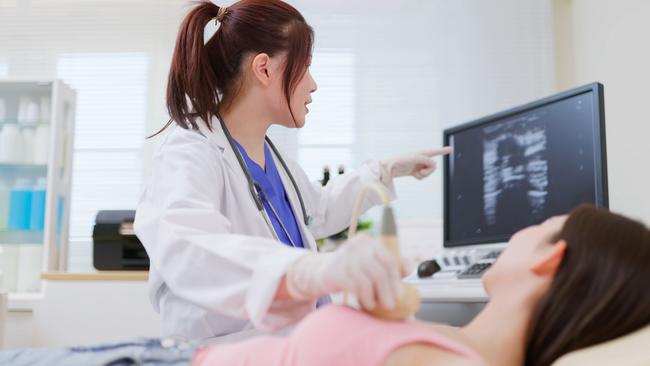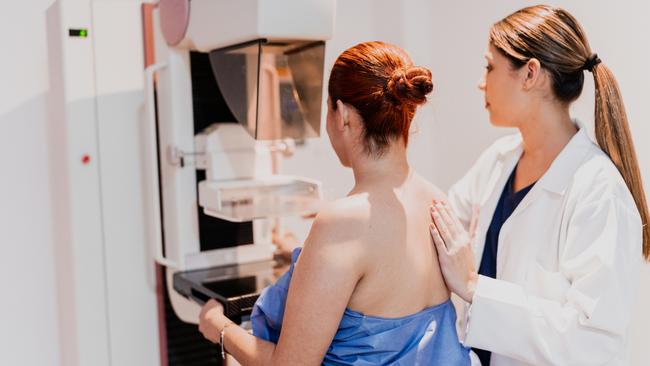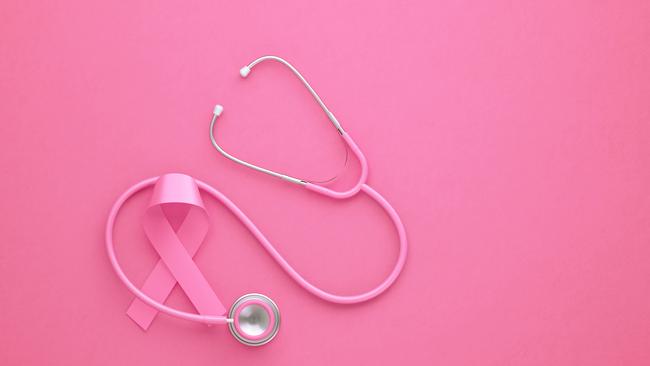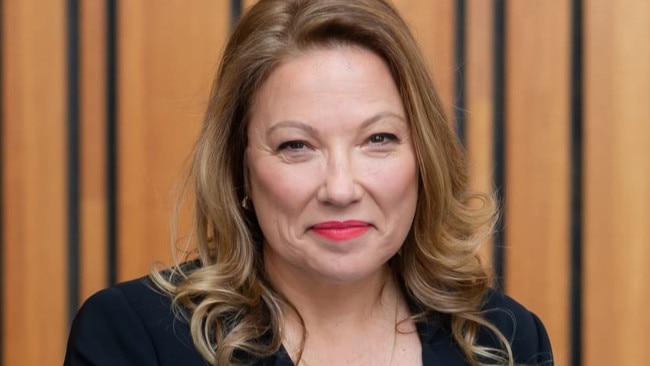Breast cancer cases in young women increasing at a ‘concerning’ rate
It’s the most commonly diagnosed cancer among women in one state; however, doctors are turning patients away because of one crucial factor.
Health
Don't miss out on the headlines from Health. Followed categories will be added to My News.
Alarms instantly sounded when then-26-year-old Kate Elson first discovered a small lump in her breast.
Aware of the dangers of finding irregularities in her chest and the risk of developing breast cancer, she headed straight to a GP for a check-up.
Despite raising concerns with the doctor about the lump, Ms Elson claims the GP dismissed her; the lump didn’t feel “nasty”, so there was no real reason to be concerned.
She said she was told that despite a gut feeling that something was wrong, she had been watching too many medical drama TV shows and films about the deadly disease.
Besides, Ms Elson was too young to be concerned with breast cancer.

Only two days after her 27th birthday, Ms Elson received the gut-wrenching diagnosis – it was breast cancer, and the lump was growing.
“Being diagnosed at such a young age was emotionally devastating,” Ms Elson said.
Two years after her initial diagnosis, Ms Elson has undergone treatments, but her cancer has returned.
She now lives with metastatic breast cancer, meaning the cancerous cells have advanced and started to spread across her body.
“I’ve been dismissed and doubted simply because of my age, but I’m not alone, many young women face similar experiences,” she said.

Breast cancer is the most commonly diagnosed cancer among young women in Victoria, and early-onset breast cancer now accounts for more than one-fifth of all breast cancer diagnoses in the state.
Over the last decade, cases of breast cancer in women aged 25 to 49 in Victoria have increased 0.6 per cent, according to the Cancer Council Victoria.
While this may seem like an incremental and insignificant figure, the Breast Cancer Network Australia (BCNA) argued it was “concerning” and “indicative of a national trend”.
There are now an estimated 528,018 young adults living with breast cancer across the planet, and with more young women being diagnosed with the deadly disease than ever before, women have been urged to stand their ground when discussing their concerns.

BCNA director of policy, advocacy and support services Vicki Durston said early detection was critical to achieving better outcomes for women.
“The data cannot be ignored,” Ms Durston said.
“We often hear from women in their 20s, 30s and 40s who have had their concerns dismissed because of their age.
“No woman should feel dismissed or unsupported simply because of her age.”
Ms Durston has urged for “immediate reforms” to offer young women support, care and resources to help catch cancer early and determine why younger women are being diagnosed at an increasing rate.
“Research on why younger women are being diagnosed is a critical part of the overall picture,” she added.
“Early detection can be the difference between a treatable diagnosis and incurable metastatic disease.”

The BCNA has urged medical professionals to take young women seriously regarding breast cancer; it is not only a disease for older adults, and rejecting their concerns could have deadly consequences.
“Health professionals, particularly general practitioners, play a pivotal role in recognising symptoms and providing timely advice to younger women,” the BCNA said in a statement.
Women have been urged to be aware of early symptoms of breast cancer, including dimpling, breast pain, swelling or lumps and nipple discharge (not breastmilk).
“Women with a family history of cancer should consider genetic testing to assess their risk,” the BCNA added.
Originally published as Breast cancer cases in young women increasing at a ‘concerning’ rate


